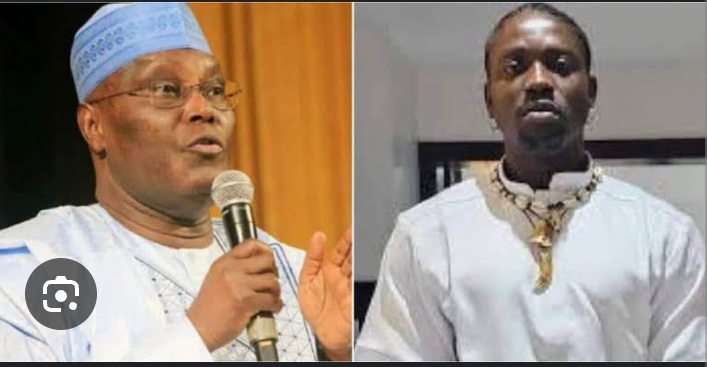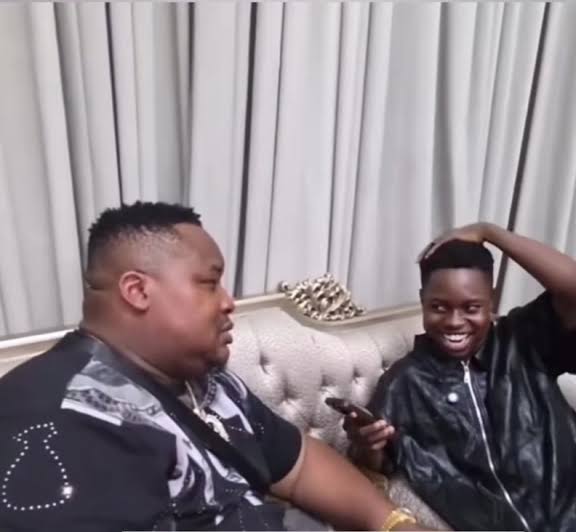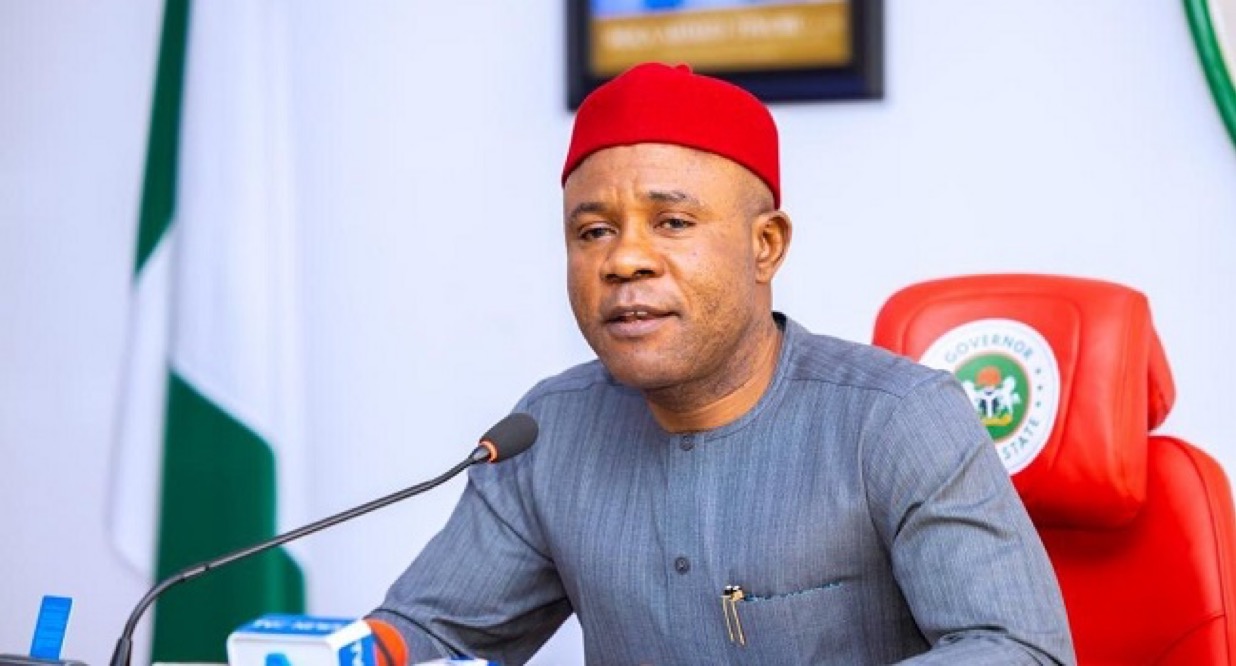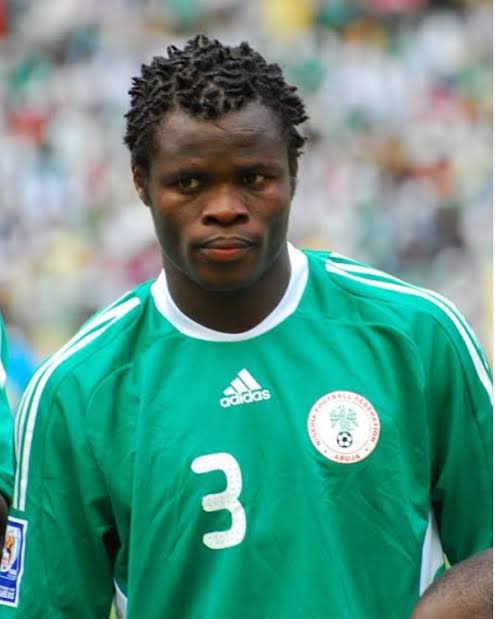
Cries of Tyranny: Atiku Slams Tinubu and EFCC Over VeryDarkMan's Arrest in Wake of Rising Public Outrage

The political temperature in Nigeria has once again hit a boiling point as the controversial arrest of social media influencer Martins Vincent Otse, better known by his alias VeryDarkMan, has sparked national uproar. With mounting pressure from youth-led protests in the heart of Abuja and a flurry of criticism from opposition figures, the detention of the outspoken activist has evolved into a full-blown debate about democracy, freedom of speech, and the alleged weaponization of state power.
Former Vice President Atiku Abubakar emerged on Monday as one of the most vocal critics of the arrest, describing it as a “blatant abuse of power” and a troubling display of political repression under President Bola Ahmed Tinubu’s administration. Atiku, using his verified X (formerly Twitter) account, issued a fiery condemnation that has since gained traction across Nigeria's political and civil landscapes. According to him, the arrest and continued detention of VeryDarkMan by the Economic and Financial Crimes Commission (EFCC) is emblematic of an administration that is growing increasingly intolerant of dissent and opposition voices.
“The arrest and continued detention of social media influencer and outspoken critic, Mr. Martins Vincent Otse, widely known as VeryDarkMan (VDM), by the Economic and Financial Crimes Commission (EFCC) is yet another blatant abuse of power by the Tinubu administration, which has made political repression a hallmark of its rule,” Atiku stated, leaving no room for ambiguity about where he stands on the matter.
EFCC’s confirmation that Otse was arrested following multiple petitions related to alleged cyberstalking has done little to quell public suspicion that the move was politically motivated. With no formal charges laid against him as of yet, critics argue that the real crime of the young activist was his unfiltered criticism of the political elite and his viral commentary that often exposed societal and governmental failings. His detention has since served as a catalyst for public outrage, with young Nigerians rallying in the capital, chanting slogans, waving placards, and demanding his immediate release.
Atiku further lambasted the continued detention as a “flagrant violation” of Otse’s constitutional rights, and a glaring example of how the Tinubu-led government appears to be tightening its grip on civil liberties. “Even more alarming is the fact that Mr. Otse remains in custody without any formal charges is a flagrant violation of his constitutional rights and a chilling reminder of the growing authoritarianism under this government,” Atiku emphasized.
This incident is not occurring in a vacuum. It comes on the heels of several similar controversies where critics of the government have found themselves on the receiving end of arrests, intimidation, or legal threats. Atiku warned that this incident is part of a larger, more sinister pattern—what he termed the “Tinubu regime’s relentless assault on the fundamental freedoms of Nigerians.” For many, this is a deeply unsettling trend, especially in a country still grappling with economic hardship, corruption, and growing disillusionment among its youth population.
Social media, the very platform that helped elevate VeryDarkMan to national prominence, has become a battleground for competing narratives. While government sympathizers argue that the rule of law must prevail and that cyberstalking allegations should be taken seriously, a louder, more impassioned chorus insists that the EFCC is being misused as a political tool to muzzle dissenters and deflect from the real issues plaguing the nation.
“This latest episode is part of a disturbing pattern,” Atiku continued in his post, “the Tinubu regime’s relentless assault on the fundamental freedoms of Nigerians, particularly those who dare to speak truth to power or align with the political opposition.” The former Vice President did not mince words as he painted a picture of a government rapidly abandoning the democratic ideals it claims to uphold.
Perhaps most damning was Atiku’s indictment of the administration’s apparent double standards when it comes to justice. “The Tinubu administration’s systematic crackdown on opposition voices is nothing short of disgraceful. It is an affront to democratic norms and must be fiercely condemned and resisted,” he declared. He accused the government of selective justice, stating that while opposition figures are swiftly arrested and detained, allies of the ruling party facing corruption allegations roam free without consequence.
As the protests continue to build momentum and political tensions rise, many Nigerians are left wondering whether this will be a turning point or just another episode in a long series of political crackdowns. Legal experts, civil society organizations, and international observers have started to weigh in, warning that the implications of this arrest go far beyond one man. At its core, this case is shaping up to be a litmus test for the Tinubu administration’s commitment to democratic governance and the rule of law.
Meanwhile, VeryDarkMan’s supporters continue to flood social media with the hashtag #FreeVDM, calling not just for his release but for a broader conversation about the state of human rights and freedom of expression in Nigeria. For a generation that has grown increasingly emboldened to challenge the status quo, the message is clear: silence is no longer an option.
As night falls in Abuja and the chants of protestors echo through the streets, one thing is certain—this is no longer just about a social media activist. It’s about the soul of a nation and the fight to preserve the right to speak freely without fear of a knock on the door. Whether the government listens or continues down this path of suppression remains to be seen, but one thing is undeniable—VeryDarkMan has become a symbol, and his arrest a rallying cry.


